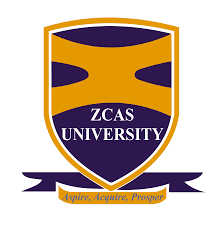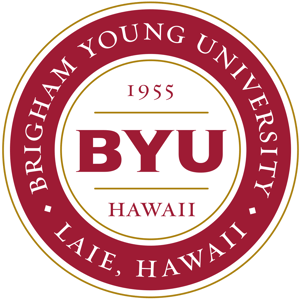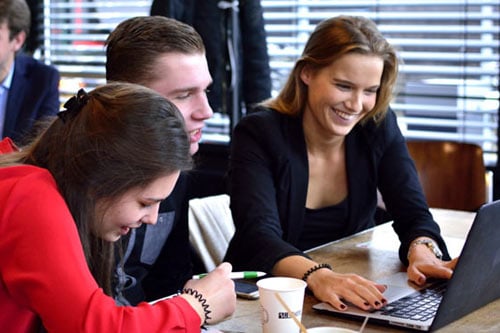The transition to online teaching as a primary medium of instruction and the setup and management of virtual learning environments (VLEs) was well underway before Covid-19 hit. Many academics were well prepared for this transition to online teaching and learning.
One of those academics is Dr. Anna Tilba, Associate Professor in Strategy and Governance at Durham University Business School. Anna has worked in Higher Education for over a decade and previously worked for Newcastle University and the University of Liverpool – the latter was where she earned her PhD in Corporate Governance. Anna is known for her research in pension fund governance, accountability and transparency within the UK Financial Services and institutional investor compliance.
Having worked with Edumundo for over seven years, we caught-up with Anna on Zoom to explore how management simulations have helped her students in the current online learning environment and how she perceives business courses will change in the future.
Can you tell us a bit about yourself, your role at the University and how long you’ve been working in the Higher Education sector?
“I’ve been in the Higher Education sector for over a decade now! In my capacity as an Associate Professor, I teach strategy at all levels and currently to over 400 undergraduate students. I conduct research, my area is governance in financial services, working with policy makers and, obviously, I try to bring my experience of research back to the classroom.”
What do you enjoy about your role?
“I never thought I’d end up in Academia! What I realised, after doing my PhD, was that I enjoyed continuous learning. There’s never a boring day in Academia! There’s always something to do, something new to learn, new to read. I like the idea of having a positive impact through my research in policy and a positive difference for the students that I teach.“
How have you had to adapt your teaching style and modules during the pandemic?
“When the pandemic struck, we had to learn quite a lot! We had to move all our learning activities online. In the summer there was a lot of learning for all staff, how to use platforms, Zoom and Teams and convert all our material online.”
"The introduction and use of wider digital resources has definitely had a positive impact in deepening the learning process. Before, the online learning environment was an archival tool. Now it’s become an active place for learning and where students can meet."
Do you think that transition went well?
“I was already pre-empting the online learning conversion. I was engaged in blended learning delivery ever since I can remember, all of my academic career. This year I piloted a new module, which before the pandemic, half of it was to be taught online.”
What made you decide to use management simulations in your taught modules?
“I’ve been using management simulations, particularly in strategy and international business, ever since I started teaching. I quickly realised this was a niche for me, that I could do something innovative, new, and exciting. I like the concept of trying new things and I could see the evolution of the online offering [of management simulations].
At which course level (s) do you use management simulations?
Both at Undergraduate and Postgraduate level.
"At the University of Liverpool [Masters level] it started with 60 students, but the module became so popular it rose to 500 students! Now at Durham University, I piloted the simulation [Emerging Markets Simulation] for first-year Undergraduates which had 410 students.
"I think it is really helpful for preparing for a career in business to have experience such as this. It's a good mix of practical and theoretical and it is really engaging to see almost real–life consequences of our work!
Undergraduate Student,
Durham University
Do management simulations feature in your assessment criteria on the module?
“In my module the whole assessment is based around the simulation. Students have to be engaged throughout the entire academic year. They play as a team but the individual report is based on the analysis of their company that they ran in the simulation. It involves academic frameworks and bringing theory and practice together.
Critical and analytical thinking is sometimes very difficult when you’re looking at a historic case as you’re looking at it from a distance. In a simulation, they do it intuitively, they’re already engaged in critical learning and analysis because they have to make connections for what it means to their business [in the simulation].”
How easy was it to manage the simulation itself?
“Edumundo offers training for staff and students. We had training sessions live and online, and it’s obviously quicker, easier, and more effective. One of the greatest, useful functions for me as a user, and for students was the 'Helpdesk' function. If students had technical problems or questions, they could immediately have feedback from the Edumundo Helpdesk.
Another innovation that I really loved this year, was that they prepared a welcome video that students can watch so at the start you get this really nice and good vibe of what you’re supposed to be doing and students get immediately excited about taking over a company. These are all really fantastic additions to what is already a really exciting product.”
What has the feedback from students been like on the simulations?
“I think students found it incredibly engaging, they could do something interesting, they could experiment, they can actually learn, what I call 'learning in action'. The module is called ‘Strategy in Practice’. They learn about strategy not from a historic case study in a seminar format but they learn by doing which is the whole concept I am delivering through my pedagogical approach to teaching. You learn theoretical concepts through practice.
The feedback I received this year was that this was one of the best modules on the programme. It’s been a fantastic collaboration and partnership and the simulation itself worked very well for me and my students.
“One of the most useful functions for me as a user, and for students was the 'Helpdesk' function. If students had technical problems or questions, they could immediately have feedback from the Edumundo Helpdesk.”
Looking to the future, what do you see changing in how HE-level business courses are designed and delivered?
“Just this morning I read a news article assessing the impact of the COVID pandemic on Higher Education and ways of learning. One of the key elements they highlighted was it dramatically increased the uptake of digital learning. The introduction and use of wider digital resources has definitely had a positive impact in deepening the learning process. Before, the online learning environment was an archival tool. Now, it’s become an active place for learning and where students can meet.
Before, we would measure student engagement in terms of attendance at lectures. Now there are various ways of measuring and understanding student engagement. Engaging in simulations, online meetings, messages on forum boards; there’s a very different idea now of what we mean by student engagement.
Although digital learning definitely enhances the learning experience, it shouldn’t substitute for face-to-face entirely. What we missed were students sitting together and engaging with each other and the Tutor.”
"It’s been a fantastic collaboration and partnership and the simulation itself worked very well for my students and me."
Emerging Markets - Management Simulation
Anna’s students took part in our Emerging Markets Simulation where students work in teams to manage a multi-national bicycle company. Each team competes in four of the largest emerging markets, which include Brazil, Russia, India, and China (otherwise known as the 'BRIC' markets). In each round they must complete an internal and external analysis, determine their strategic focus, and take operational decisions for all departments of their companies. They also need to analyse the markets and news items in order to make decisions which will give them the upper hand over their competitors.
Best wishes and good luck to her students as they come to the end of their final round in Emerging Markets! I have a feeling it's going to be a close one this year!
Finally, many thanks to Anna for taking time out of her busy schedule to talk to us.
Further Information
- Profile, Dr Anna Tilba, Phd
- Cowell, Paul (2021) COVID-19 Has Changed University Teaching – Here Are Five Things to Stick With in the Future Accessed on 26/02/2021, click here for the link to the article.
Click on the button below to view our catalogue of management simulations.

-1.png?width=800&name=Anna%20Tilba%20Photo%20(Zoom)-1.png)
.png?length=300&name=unnamed%20(11).png)
.png?length=300&name=unnamed%20(7).png)
.png?length=300&name=unnamed%20(8).png)
.png?length=300&name=unnamed%20(6).png)

.png?length=300&name=unnamed%20(10).png)
.png?length=300&name=unnamed%20(5).png)
.png?length=300&name=unnamed%20(9).png)
.png?length=300&name=unnamed%20(4).png)
.png?length=300&name=unnamed%20(2).png)
.png?length=300&name=unnamed%20(1).png)
.png?length=300&name=unnamed%20(3).png)
.jpg?length=300&name=unnamed%20(2).jpg)





.png?length=300&name=loughborough-university-logo%20(small).png)





